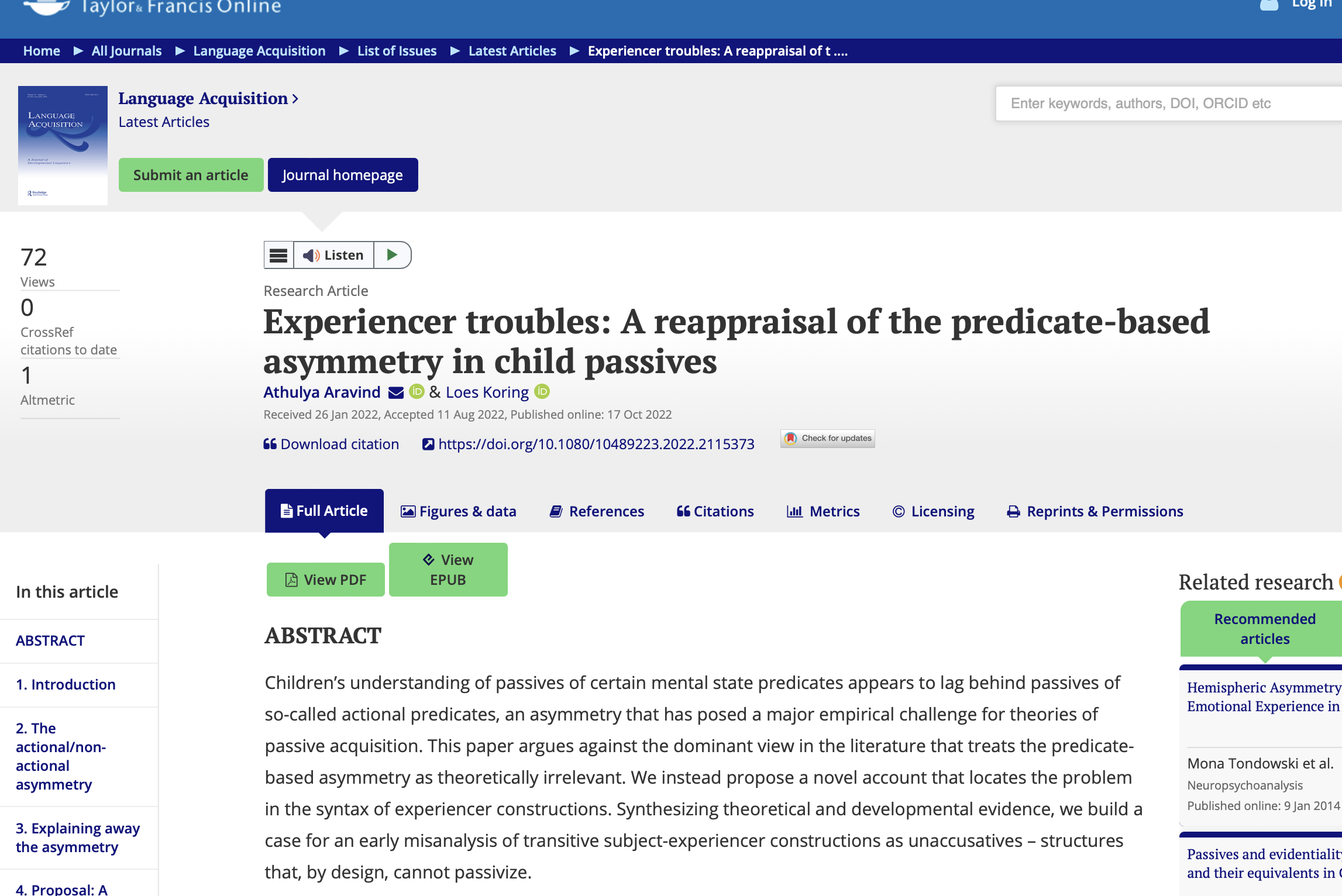LFRG is excited to welcome Bergül this week! The meeting will be in person, but we’ll set up OWL for people in the department who want to attend virtually.
Speaker: Bergül Soykan (MIT)
Date and time: Wednesday 10/26, 1-2pm
In-person location: 32-D461
Title: Past in Turkish Conditionals
Background: The past morpheme in Turkish conditionals can either precede the indicative conditional marker or follow the subjunctive one as shown by (1) and (2), respectively. While (1) can be uttered in a context where the speaker is oblivious about whether Esra went home or not, (2) is most likely to be uttered when the speaker knows that she did not go home, i.e., in counterfactual scenarios.

There are also the non-past subjunctive conditional constructions in Turkish as in (3), which can be licensed in cases where the speaker believes the antecedent event to be unlikely to occur.

Problem: The differences between these constructions can be handled from two perspectives.
PAST [INDICATIVE vs SUBJUNCTIVE]: The antecedent past marker in (1) does not affect the time of its consequent whereas the one in (2) requires the use of past in the consequent clause. Interestingly though, it is not necessary to have the past morpheme in the antecedent to have a past subjunctive conditional; having it in the consequent would suffice without any significant meaning difference. Moreover, while the past indicative conditional only licenses past time adverbials in its antecedent, the subjunctive one can be used with both past and non-past adverbials.
[NON-PAST vs PAST] subjunctive: Although both (2) and (3) are accessible in counterfactual contexts where Esra is not going home at the utterance time, they differ in their presuppositions. For instance, the existence presupposition must hold for the non-past subjunctive but not for the past version; namely, (2) is still available in a context time where Esra is not alive while (3) is not.
Proposal: Considering all these aspects, I claim that the past in subjunctive conditionals is interpreted outside the modal operator (Ippolito, 2002), setting the modal time (“reference time” in her proposal) to the past while the one in indicatives is interpreted inside its own proposition. I suggest that this shift in the modal time of the conditional clause lets us make claims about the future possibilities from a past perspective and hence makes it possible to use non-past time adverbials along with the past ones. However, contrary to Ippolito’s (2002) claim, I argue that past subjunctives hold no presuppositions with respect to the utterance time (Leahy, 2011), to explain the difference between past and non-past subjunctives. In my account, non-past subjunctives have a special speaker-oriented likelihood presupposition, where the speaker considers the antecedent to be more likely to be false than true, in addition to other presuppositions. Nevertheless, the past subjunctive holds no presuppositions and generates the counterfactuality implicature by competing with its past indicative counterpart (Leahy, 2017).




